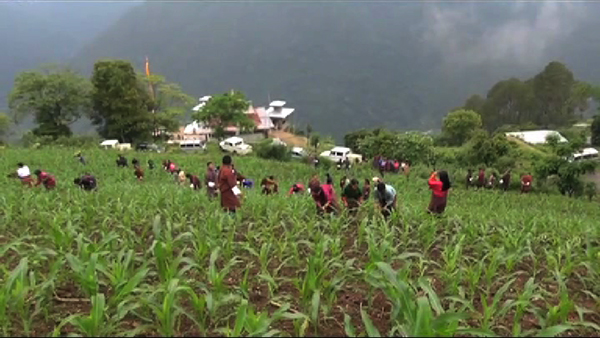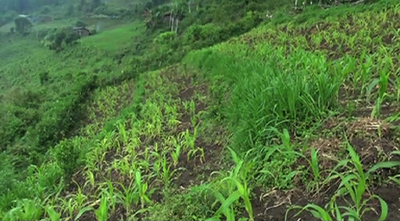 To combat land degradation and improve local land productivity, a sustainable land management project (SLMP) was launched in Monggar. Nearly 35 acres of land in Saling and Tsamang Gewogs of Monggar were covered under the project. Every year, the country loses around three to 21 tones of soil per hectare to land degradation from rainwater.
To combat land degradation and improve local land productivity, a sustainable land management project (SLMP) was launched in Monggar. Nearly 35 acres of land in Saling and Tsamang Gewogs of Monggar were covered under the project. Every year, the country loses around three to 21 tones of soil per hectare to land degradation from rainwater.
Hedgerow plantations were carried out in the fields as part of the project. SLMP is a scientifically proven and widely accepted global initiative towards combating land degradation. The project was first started in the country in 2006.
Farmers of Saling and Tsamang were introduced to Hedgerow plantation in 2010 and it has today become the most common method of sustainable land management practice
“Initially, when we were not introduced to sustainable land management practice, the land used to be sloppy and not feasible for crop cultivation. But after planting hedgerows, the land became plain, which is good for cultivation. When we don’t prune the hedgerow, it affects maize productivity, but when we prune it, it doesn’t affect the productivity, ” Chenga Lhamo from Tsamang said.
 “Hedgerow could be used as fodder for cattle. The main objective of the SLMP was to prevent land degradation. So it has really benefitted us as it turned the rugged landscapes into plain areas. I see lots of differences in land productivity after planting hedgerow,” Shacha Wangmo from Saling said.
“Hedgerow could be used as fodder for cattle. The main objective of the SLMP was to prevent land degradation. So it has really benefitted us as it turned the rugged landscapes into plain areas. I see lots of differences in land productivity after planting hedgerow,” Shacha Wangmo from Saling said.
“When it rains heavily, hedgerow plantation helps our lands from landslide. After introducing sustainable land management practice, topsoil is prevented from being washed away by rainwater and it improves our soil fertility,” Dechen Wangmo also from Saling, said.
Record with national soil services centre revealed that over 10,500 of vulnerable lands have been brought under various sustainable land management practices so far.
Besides this, more than 25,000 people including farmers, local leaders and RNR staffs have been trained and sensitised on such practices. However, the lack of budget and cooperation from farmers are some of the challenges faced by the ministry while implementing the project. If such interventions are not taken, officials say food security would come under threat for the country.









